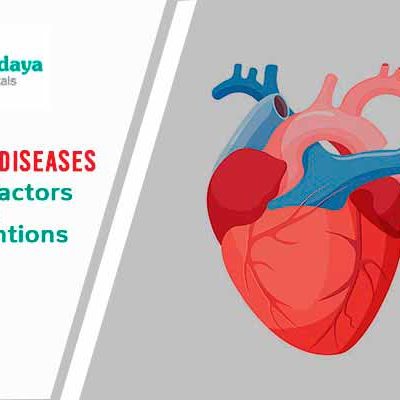1. What are kidney stones?
Kidney stones are solid masses that form in the urinary tract. They can be as small as a grain of sand or as big as a golf ball. Kidney stones are usually made of calcium, oxalate, and other minerals found in urine.
2. Are they painful?
Yes! Most people describe their pain as a dull ache or pressure in their back or side; however, some people report sharp pain, which may lead to nausea or vomiting.
3. What are the symptoms of kidney stones?
Kidney stones are usually painless and remain in the kidney for a long time. The most common symptom is an intermittent sharp pain that can be felt in the flank or back, which does not disappear after urination or after walking. Pain may also radiate to one or both sides of the waist.
4. What causes kidney stones?
There are many possible causes of kidney stones, some of which are hereditary, but most cases are related to diet or lifestyle factors. For example, a high-protein diet may cause calcium oxalate stones, while excessive intake of purines (which occur naturally in meats) may cause uric acid stones.
5. Are kidney stones common?
Kidney stones occur when urine becomes too concentrated (hypercalciuria). This excess calcium can crystallize in the kidneys, forming hard masses called renal calculi. The risk of developing a kidney stone is increased by certain conditions or medications, but it does not happen to everyone who has these risk factors.
6. How are kidney stones diagnosed?
Kidney stones are typically diagnosed through a combination of medical history, physical examination, and imaging tests.
7. What are the complications of kidney stones?
Kidney stones can lead to serious complications, such as infection, kidney damage, and urinary blockage.
8. What is the difference between kidney stones and gallstones?
Kidney stones are more common than gallstones, but they have different signs and symptoms. Gallstones can cause some pain, while kidney stones may not cause any noticeable symptoms at all. Gallstones are solid deposits of cholesterol or other substances in the gallbladder. Kidney stones are made up of minerals such as oxalate and calcium phosphate that become lodged in your kidneys.
9. What should I do if I have a kidney stone?
If you have a kidney stone, call your doctor right away to find out what’s causing this condition and how to treat it. Seek medical attention even if you feel well and don’t have any symptoms at that time.
10. How can I prevent kidney stones?
There are several measures you can take to reduce your risk of developing kidney stones, including maintaining a healthy diet and lifestyle, staying hydrated, and avoiding certain medications.
11. What is the prognosis for people with kidney stones?
Most people with kidney stones will eventually recover without any lasting complications. However, recurrent stone formation is common, and some people may experience chronic pain or other long-term problems.
12. What is the most common type of kidney stone?
The most common type of kidney stone is made up of calcium. Other types of kidney stones include struvite, uric acid, and cystine.
13. How long does it take to pass a kidney stone?
It can take anywhere from a few days to a few weeks for a kidney stone to pass. Larger stones may require surgery.
14. How do you know if I have a kidney stone?
Signs and symptoms of a kidney stone usually include pain in the side, back, or stomach area, nausea, vomiting, and fever. If you experience more than two to three episodes of these symptoms within two weeks, it’s important to visit your doctor immediately.
15. Who treats Kidney stones?
Kidney stones are usually treated by a team of doctors that may include a urologist, nephrologist, and general surgeon.
16. Can I get kidney stones if I am on dialysis?
Yes. Kidney stone formation is not uncommon in people on dialysis. Dialysis patients are at risk for developing calcium oxalate renal calculi because their kidneys cannot excrete excess calcium and oxalate in urine.
17. How are kidney stones treated?
The treatment of kidney stones depends on the size and location of the stones. Smaller stones may pass on their own, while larger stones may require surgery.
18. Is it safe to have laser treatment for kidney stones?
Yes, it is safe to have laser treatment for kidney stones. The laser energy is absorbed by the body tissues and does not affect the blood vessels or organs in the body.
19. Will I feel any pain during laser kidney stone removal?
No, there will be no pain or discomfort after the treatment session. The laser beam may feel a little warm but it is not painful or uncomfortable.
20. How long will laser kidney stone removal take?
The duration of your treatment depends on many factors such as your age, body weight, and renal stone size. For example, if you have small kidney stones then it will take less time than if you have large ones that are difficult to pass through the ureter.
21. How does laser treatment for kidney stones work?
Laser therapy treats kidney stones by breaking up the crystals in the kidney. The laser beam heats up the renal pelvis, which causes the crystals to melt.
22. Will I need surgery after receiving laser kidney stone removal?
No, there are no surgical procedures involved in this process. You will be able to resume your normal routine after receiving the treatment.
23. How long will it take to recover from kidney stone treatment?
It depends on what type of treatment you have received and how severe the case was. In general, you should expect to feel better within 1-2 weeks after treatment has been completed.
24. Is there anything I can do at home to prevent kidney stones?
Yes, many things you can do at home can help prevent kidney stones from forming in the first place. A good diet with plenty of water, exercise, and proper rest are all excellent ways to keep your urine clean and lower your risk of getting kidney stones. You should also make sure that you don’t have any urinary tract infections or other health conditions that might make it more likely for you to develop other types of kidney problems such as inflammation or chronic kidney disease.









